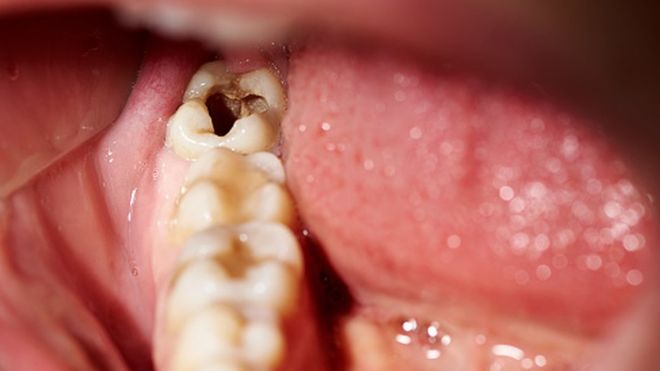
Yes,There’s a lot of proof to propose that water flossing does in fact decreases plaque levels and prevent tooth-decay. However, many people also want to know what proof is there that flossing can diminish the danger of both tooth decay and gum disease? When you investigate the exploration, it’s not exactly as clear as you may think.
A survey of flossing among kids and teens discovered it does help to prevent decay, but the study also showed that adults it’s was not as simple to determine. An audit distributed by the regarded Cochrane Collaboration in 2012 compiled the most recent research on flossing and found only a few preliminaries, generally directed in the US, where adults were randomly either brushing their teeth or flossing on a regular basis.
What Causes Tooth-decay?
In order for tooth decay to be developed in a tooth, that tooth must have acid producing bacteria around it, along with food for the bacteria to feed upon. Teeth that are susceptible to decay will have little to no fluoride in the enamel to fight the plaque. Fluoride can destroy decay, although it won’t be able to do much once the decay has started to eat the teeth.
How does a water flosser help to prevent cavities?
Water flossers can prevent the growth of cavities caused by left over food particles. By using water flossers, food particles were pushed away and suddenly removed in between the teeth. Using water flossers every after meal can maintain the cleanliness of your teeth.
Cavities are caused by frequent snacking, eating sugary foods, and not brushing your teeth well. Food particles left in your teeth might cause the development of tiny holes that will destroy your teeth slowly.
Prevention is better than cure. It is better to know what to do while your teeth is strong and healthy rather than taking medicine because your teeth’s situation becomes worse.
Brushing your teeth, visiting your dentist, and using water flossers are great combination to protect your teeth from future infections. Practice proper oral hygiene for brighter and better smile.
Best Ways You Can Avoid Tooth-Decay
The best way to prevent tooth decay aside from using water flossers is to avoid foods with high content of sugar like candies, chocolates, and fruit juices. You should also avoid eating crunchy and hard snacks that may prick your gums and cause infection.
Here are additional steps you can take to prevent tooth decay:
1. Improve Oral Hygiene
Poor hygiene habits will allow the plaque and tartar to build up around teeth and speed up the process of decay. Even though your mouth has a lot of bacteria that is always present, only one type will generate the acid that results in tooth decay. Some people have active decay that is always present in their mouths. Parents with active decay can easily pass the decay on to a child or loved one through eating, drinking from the same glass, or even kissing.
Once the decay has settled in the tooth’s enamel, it will progress very slow. Once it has made it through to the second layer of the enamel, it will spread faster as it heads towards the pulp. The pulp is a vital area of the tooth, as it contains the nerves and blood supply. This is where the pain will be the most intense, as the decay will start to eat at the nerves.
2. Building Tooth Enamel
Although decay can take 2 – 3 years to get through the enamel, it can make it from the dentin to the pulp in less than a year. Once it makes it to the dentin, the decay can destroy most of the tooth structure in a matter of weeks – or months. The most preventable type of tooth decay, known as smooth decay, also grows the slowest. It starts out as a white spot in the tooth, where the bacteria dissolves the enamel. Smooth decay is very common with those 20 – 30 years of age.
Pit or fissure decay is a bit more serious, forming along the narrow grooves in the chewing side of the molars. It progresses more rapidly, and can eat your teeth a lot faster than smooth decay. Due to the grooves being so narrow, it can be hard to clean them with regular bushing. Even though you may brush on a regular basis, this type of decay is hard to prevent without going to the dentist for your regular checkups and cleaning.
3. Root Decay
The last type of decay, known as root decay, begins on the surface of the root. Root decay is common with middle aged individuals. It is normally the result of dry mouth, a lot of sugar, or not taking care of your teeth. Root decay is the most difficult to prevent, and the most serious type of tooth decay. It can eat teeth fast, leaving you no choice but to get the affected teeth removed.
Final Thought:
Tooth decay is no laughing matter, and should always be treated before it has time to spread and affect more of your teeth. If you visit your dentist for your regular checkups and cleaning, you can normally prevent it from starting. You should always brush on a daily basis, and use mouthwash such as Scope or Listerine to kill bacteria. Bacteria is always present in your mouth, although you can use mouthwash to kill it. If you take care of your teeth and follow the advice of your dentist, you can normally prevent tooth decay before it has a chance to eat at your teeth.
